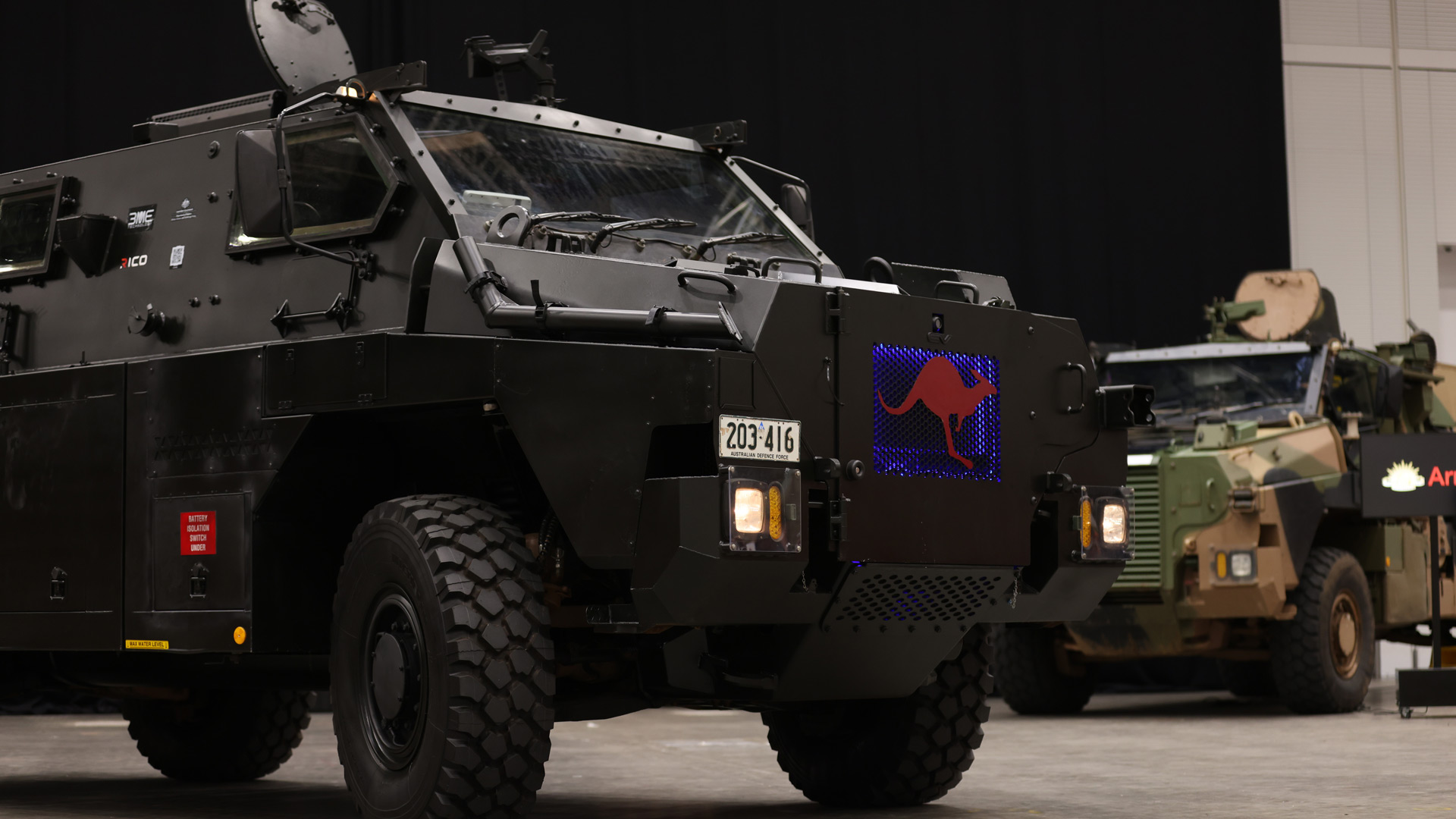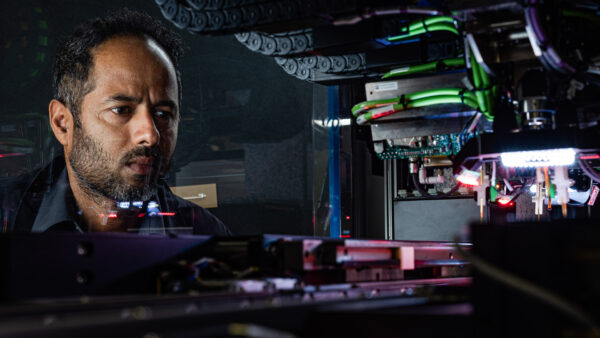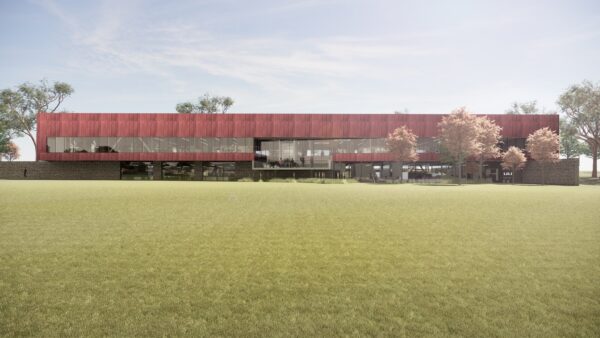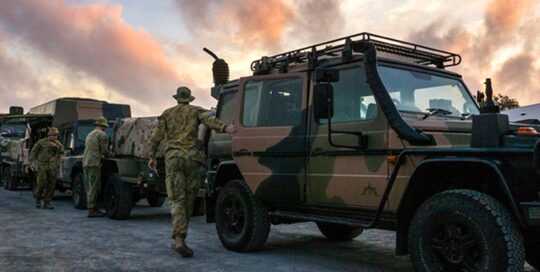SA company looks to the sun to power Army vehicles
23 August 2022
South Australian company Praxis Labs could transform the way Australia’s future armoured vehicles are powered by using cutting-edge solar technology to harvest the sun’s energy.
The company – formerly known as Praxis Aeronautics – has developed solar-powered technology that enables composite materials, such as fibreglass and carbon fibre, to capture energy from the sun whilst remaining lightweight and robust.
The technology has the potential to revolutionise small unmanned aerial systems and surface vessels by providing a sustainable energy solution – and now the company is focusing its attention on improving the performance of Australia’s next generation electric vehicles on the battlefield.
Working closely with the Australian Army’s Robotics and Autonomous Systems Implementation Coordination Office (RICO), Praxis Labs has developed a structural solar bonnet solution as part of the electric Protected Mobility Vehicle (ePMV) project.
The solar bonnet was displayed at the recent launch of the Army’s new electric vehicle variant at the Chief of Army Symposium 2022 in Adelaide, and Praxis is now looking at how to apply solar technology to other areas of the ePMV.
According to Praxis Labs’ Managing Director Katie Donaldson, the opportunity to support the project arose after making valuable connections at the Capability Acquisition and Sustainment Group Defence Industry Study Course which she completed in 2021. Katie received a Defence Industry Study Course Scholarship from Defence SA to participate in the course.
“At the time, RICO was in the early stages of developing the ePMV… and saw the potential for a solar capability to add to the future power independence of the vehicle,” she said.
“If existing Defence equipment can harvest its own energy, Defence can increase its power generating capability without increasing its amount of equipment.
“On Protected Mobility Vehicles, having a solar solution means that while on silent watch the vehicle doesn’t run its battery down or deplete its fuel reserves to run comms equipment. Removing the need for generating power to conduct its operations while on silent watch reduces the signature of the vehicle.
“PMVs are not only used in battle; they are also used in humanitarian efforts such as flood and disaster relief where normal fuel supply lines are disrupted. The ability for the vehicle to charge its own battery gives it more power independence.”
Katie said the company has removed all the typical obstacles for Defence using solar, such as added weight and fragility.
“Defence relies heavily on equipment that is inherently fragile, it is just packaged correctly to survive the harsh Defence environment. Praxis Labs has done the same for solar.
“Structurally reinforcing the cells using Praxis’ technology means that for an application such as a PMV, they can be walked on, survive localised damage and be refinished just like a normal composite structure.”
“This project has given Praxis huge visibility within Defence and given us the opportunity to explain the versatility of the technology to a wider audience. It has put us in direct contact with high-ranking Defence decision makers and the end users who can tell us the power problems they need solving.”
Visit Praxis Labs website to learn more about the technology.









